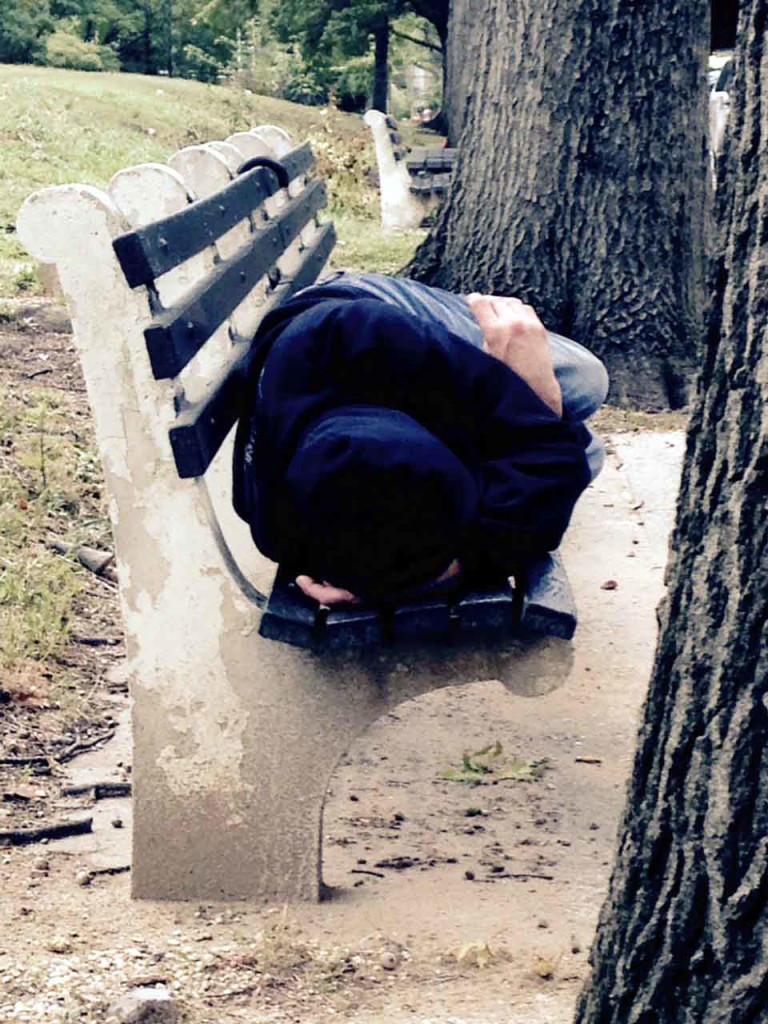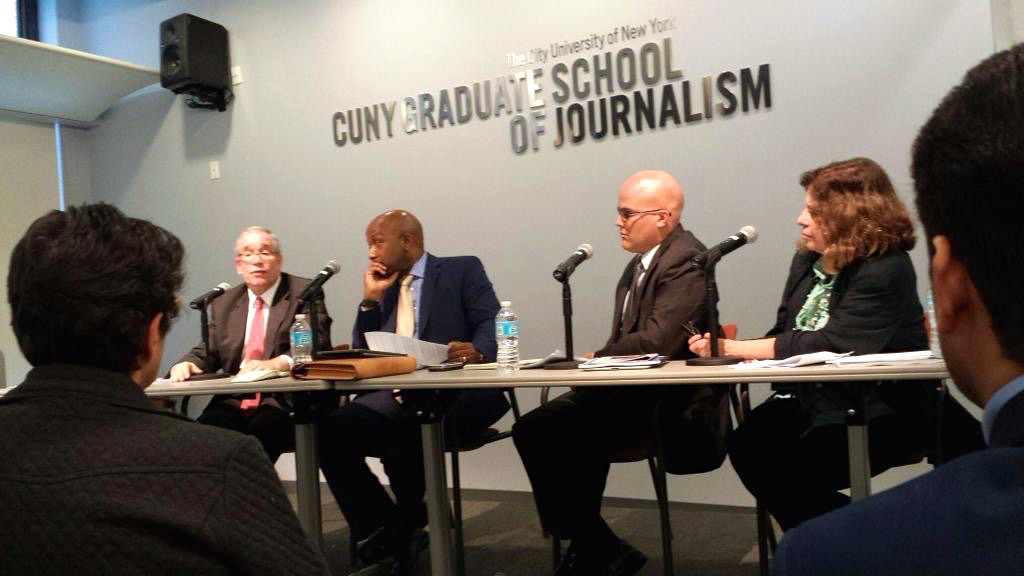
Photo by David Greene
New York City Human Resources Administration (HRA) is picking up some responsibilities normally handled by the New York City Department of Homeless Services (DHS), coming amid city’s booming homeless crisis.
Participating in a panel at the CUNY School of Journalism’s Center for Community & Ethnic Media, New York City Comptroller Scott Stringer revealed the HRA, a homeless prevention agency that provides social services to the impoverished, is now reviewing a number of unregistered contracts from homeless shelter providers. Stringer has remained a staunch critic of DHS, having rejected several DHS-approved contracts he deemed unworthy of city monies. His remarks suggested little confidence in DHS by the de Blasio administration toward DHS. A follow up inquiry to Stringer’s press office yielded no comment.
Contracts come with millions of taxpayer dollars attached to operate a shelter. They are typically reviewed by DHS, an agency whose main task is to secure housing for the homeless mostly through nonprofit shelter providers. The de Blasio administration recently increased DHS’s budget to $953 million as it deals with a record number of 60,000 homeless people around the city. DHS had once been part of HRA until becoming its own separate agency in 1993, though still intertwined.
With a $9.7 billion budget, HRA complements the “tale of two cities” argument politicos routinely use when social inequities surface. It functions as a kind of safety net for the city’s downtrodden, working as a detractor of homelessness, which many HRA clients stand on the brink of daily. Services to HRA clients include SNAP benefits, rent vouchers and HIV/AIDS services.

Photo by Vivian Carter
A spokesperson for the New York City Department of Homeless Services confirmed the practice, noting “in order to expedite registration, HRA will be assisting DHS in the process.”
But contracts are indeed assessed by various agencies that include the New York City Law Department and Comptroller’s Office. Should a long-term shelter be reviewed, for instance, multiple New York City agencies, including the Office of Management and Budget, the Mayor’s Office of Contract Services and the Department of Investigation, will look at the contract.
But the new layer of review points to a new kind of influence fueled by the agency’s commissioner, Steven Banks.

Steven Banks
HRA’s review of contracts began sometime after Banks, a dogged and well-respected crusader for the city’s homeless, became the agency’s commissioner in 2014, according to a former HRA employee familiar with the practice. The move indicates a more hands-on approach from Banks, though it also deepens the layers of bureaucracy that can slow the process down.
Banks was known mostly from his work as a litigator for the Legal Aid Society for 31 years, becoming a critical voice for more city services for the homeless. In 2008, Banks ended a successful fight against the city that enforced the federal “right to shelter” mandate.
“Steve took over running a number of the contracts, and [DHS Commissioner Gilbert] Taylor was okay with it, understanding this had to be worked as a piece so that when you wanted not to evict somebody you had to also be working from the other side with how you get someone out of a homeless shelter,” said the former employee, who asked not to be named since they still have ties office employees.
Shelter contract reviews often involve a set of criteria that includes assessments of a shelter’s building conditions, the level of social services for families, and its effect on families living in the shelter.
“I would assume [Banks is] wanting to make sure the money is going into effective contracts. There’s a lot of city contracts that sort of go on. No one really looks at the deliverables, whether they were met, or how they are met. So I think it’s very important to him since it costs a lot of money to try to keep people out of the shelter, but it costs more having them in,” said the former HRA employee.
Growing Turmoil
Banks’ handling of shelter contracts signifies a more increased relationship between HRA and DHS. The two agencies have collaborated more through homeless prevention initiatives Banks has introduced. Those include Homelessness Diversion Units that offer “one-shot” emergency grants, rental assistance and expediting rental payments to landlords.
But the timing of the reviews also comes amid growing turmoil within the homeless shelter system. In March, the New York City Department of Investigation (DOI) released a report detailing hazardous and unsanitary conditions at city shelters, some of which lacked a formal contract. This resulted in 621 violations against 25 shelter buildings. The report also detailed DHS’ subpar review and follow up on problematic shelters, which include ensuring building violations have been resolved.
Following the report, Comptroller Scott Stringer later rejected several shelter contracts for non-fiscal reasons, explaining that families should not be subjected to living in unsafe conditions.
A spokesperson for HRA did not disclose or elaborate why certain contracts were under review.





Gilbert Taylor should just quit and go home.